Funding Model Helps Bangladesh Expand Primary Health Care
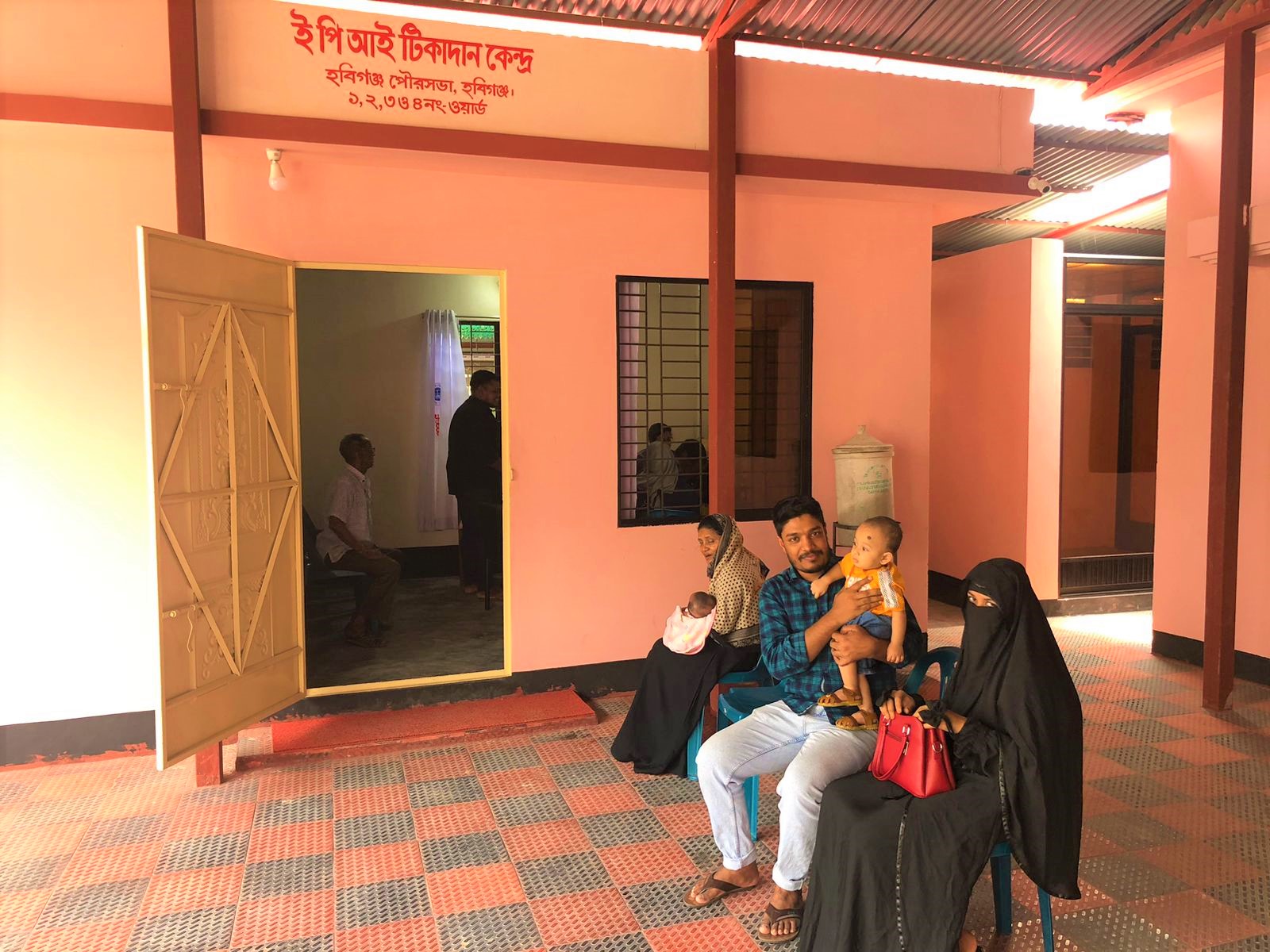

Decision makers like Habiganj Municipality Mayor Ataur Rahman Selim are charting fresh territory in primary health care. For the first time, municipalities like Habiganj are allocating funding from their own resources to support primary health care services in urban areas of Bangladesh. “We want to show that basic primary care is a rising priority for our municipality,” Selim said in announcing new efforts to make it easier for residents to access and afford services.
High-quality, community-based primary health care is the backbone of healthy families and stable communities and a vital safeguard against public health threats. Yet in Bangladesh, rapid urbanization combined with poor financing for public primary health care services have led to major gaps in coverage. If public services aren’t available in times of need, most city dwellers resort to expensive private facilities they can barely afford.
Reducing out-of-pocket health care expenditures for low-income residents
To address this mounting challenge, USAID’s Abt Global-led Local Health System Sustainability (LHSS) Project partnered with local government officials in Bangladesh’s Sylhet and Rajshahi Divisions, where millions of people lack reliable access to public primary health care.
Central to our approach was an effort to revitalize health standing committees within the local government institutions (LGIs). These committees would plan, execute, and monitor primary health care services within each LGI. Abt worked with LGI authorities to engage a diverse and influential group of local stakeholders to serve on the committees. Using a collaborative funding model, Abt helped the committees develop other resources to bolster municipal commitments.
Mobilizing resources for primary health centers in Habiganj municipality
In Habiganj municipality, Abt worked with the committee to conduct a comprehensive mapping of zones that lacked functional primary health care sites. They discovered that a population of over 100,000 from five contiguous wards had no access to a primary health care facility. Filling this urgent need became the committee’s highest priority.
Lacking a ready source of financing for a new health facility, the committee focused on mobilizing resources from an array of collaborators. First, they located an unused building owned by the municipality and undertook a nine-month renovation project to transform it into a health center. The municipality invested over two million Taka — or about $18,000 — from its own development budget to complete the renovations.
The health standing committee then turned to other pressing issues of equipment, medicine, and service providers to operationalize the center. The Civil Surgeon’s Office extended its support by committing human resources to provide five days of treatment services per week through three specialized doctors, free-of-cost to the new health center.
The mayor of Habiganj, meanwhile, used his influence to collaborate with private sector entities like the pharmaceutical representatives’ association to source essential medicines for the center. The Habiganj Diabetes Hospital contributed three medical beds, and the municipality recruited a full-time nurse and cleaning and support staff for consistent service to the poor.
Finally, Abt supported the health standing committee in forming a management committee to monitor the service quality and operations of the center. Members include elected ward councilors, the chair of the Habiganj Chamber of Commerce, and other individuals capable of providing financial, technical, or political support.
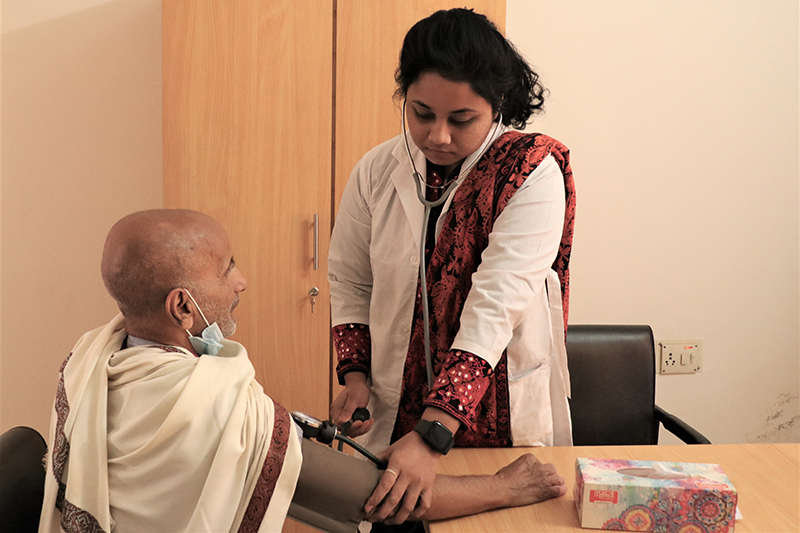

The mayor inaugurated the Habiganj Primary Health Care Center in December 2022, increasing access to care for thousands of municipality households. The center offers basic health services such as maternal and child health care, and treatment for common illnesses. It also integrates daily immunization services, which were previously provided by the municipality through a satellite program.
The impact of the Habiganj primary health care center has been immediate and far-reaching. Between January and September 2023, the center handled nearly 2,000 outpatient visits and provided immunization services to more than 4,000 children. The once abandoned building has now become a symbol of progress, reflecting the power of locally led collective efforts.
Habiganj isn’t alone. Bogura Municipality is working to renovate four previously shuttered facilities to create new primary health care programs for residents. “Other local leaders in the health sector are also becoming sensitized to the importance of primary health care,” said Mayor Rezaul Karim Badsha. “We are seeing their interest in what we are doing, and other municipalities may replicate our efforts to expand these essential services in their own cities and towns.”
Indeed, at the end of activity in April 2024, five municipalities in addition to Habiganj and Bogura where Abt helped develop primary health care implementation plans---Joypurhat, Moulvibazar, Natore, Naogaon, and Sirajganj --have either opened new health centers or are in the process of opening one. And they are allocating higher amounts for primary health care from their revenue budgets to continue the momentum.
Read More
Health Policy & Systems in South & Central Asia
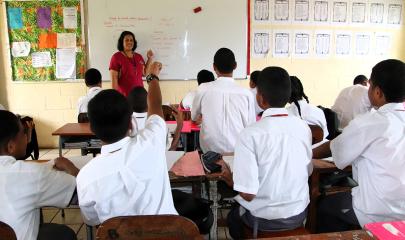
Flexible Delivery of Development Programs in Fiji
The Abt-managed Fiji Program Support Platform implements a portfolio of Australian Government-funded development programs, in alignment with Fiji's national priorities and the Australia-Fiji Vuvale Partnership.
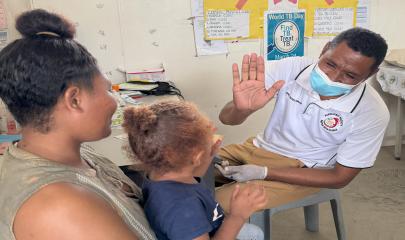
Provincial Leadership Means Better Health Services in Papua New Guinea
Improved provincial financial governance is boosting health services, efficiency, and donor trust across Papua New Guinea with support from Abt.
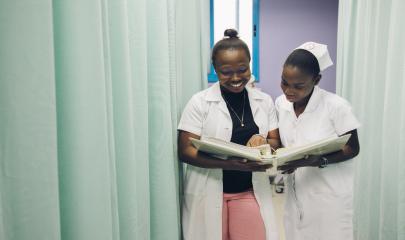
Local Health System Sustainability Project (LHSS)
Abt helped 25 countries reform their own health financing, improve access to and quality of health services, and prevent and contain disease outbreaks.

Evaluation of Indigenous Family Wellbeing Services
Abt’s evaluation found that FWS help reduce Aboriginal and Torres Strait Islander children’s entry into the child protection system.
